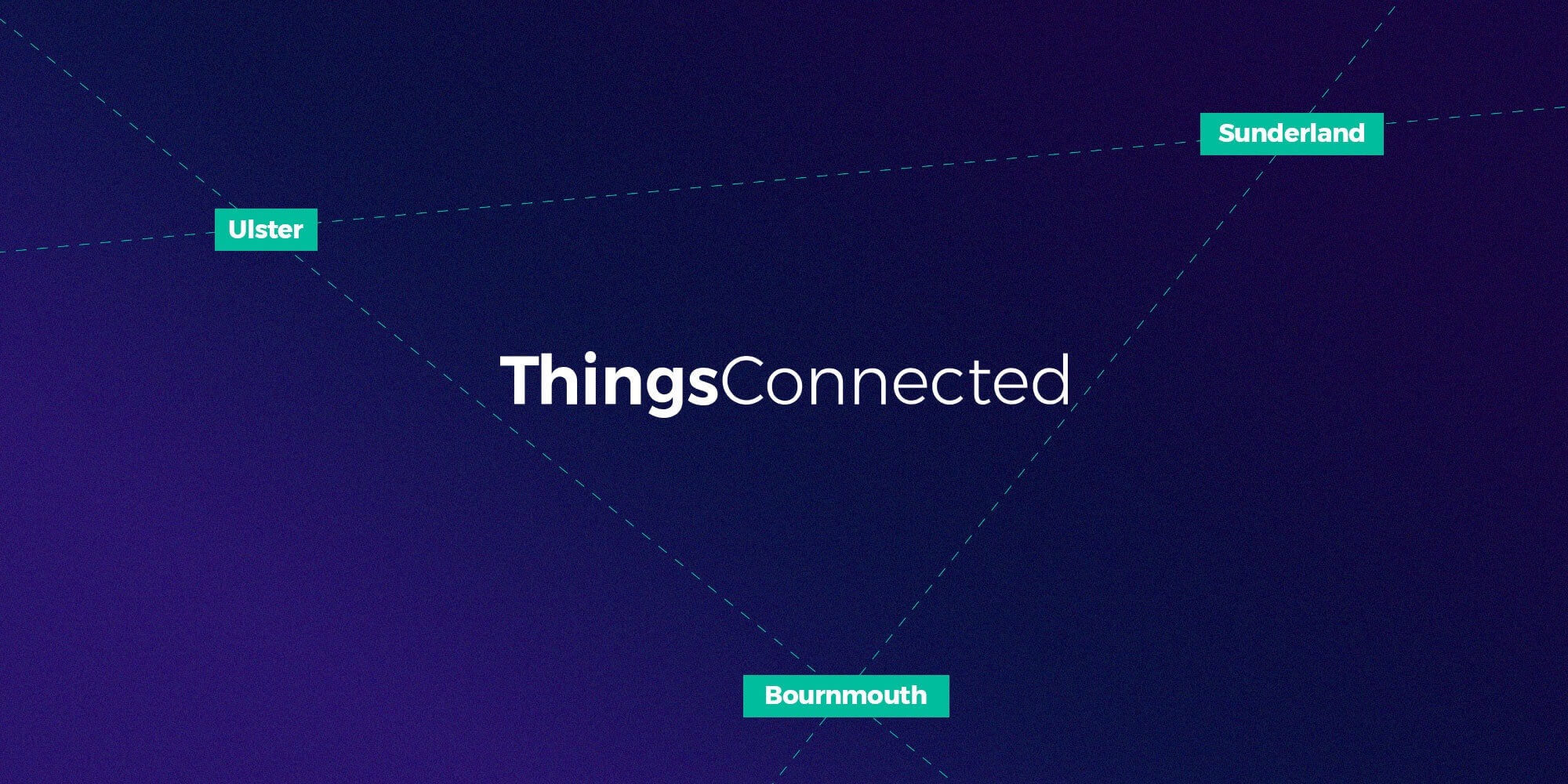Digital Catapult announces new IoT regional partners in Sunderland, Ulster and Bournemouth
Posted 30 Nov 2017
Three regional partners selected to support Digital Catapult in roll-out of regional Low Power Wide Area Networks following competitive Open Call.
30 November 2017 – Today Digital Catapult announces its partners in establishing Low Power Wide Area Networks (LPWAN) in three locations across the UK. Sunderland Software City, Ulster University and Amphy Ltd (working in partnership WND UK), have been awarded funding, as part of the Catapult’s Things Connected programme, to establish infrastructure for Internet of Things (IoT) development. The three networks in the North East & Tees Valley, Northern Ireland and Bournemouth respectively, will expand upon Digital Catapult’s existing network in London and will be free to use for experimentation and prototyping, with associated startup and scaleup innovation programmes.
Partnerships were awarded following a competitive Open Call, whereby consortia submitted their plans for IoT testing and development through varied initiatives across the private and public sectors. From remote healthcare and wellness monitoring, to improving efficiency in the manufacturing sector, connected technologies will enable regions to better meet local business challenges and drive economic growth.
“With 25 percent of IoT services expected to be delivered over LPWAN by 2025, failure to establish an accessible network could dull the UK’s competitive edge,” explains Dr Jeremy Silver, CEO, Digital Catapult. “The Things Connected programme aims to counter this threat by supporting the development of IoT, placing the UK in a better position to grasp a sizable chunk of this multitrillion-dollar global market. Its regional roll-out will democratise resulting economic growth, ensuring that businesses across the country reap the day-to-day rewards this technology offers.”
- Sunderland Software City will employ the network to develop smart water metering, streamline supply chain logistics and improve rail infrastructure.
- Ulster University will drive efficiencies in healthcare service provision and manufacturing distribution. It will also use connected sensors to better understand tourism patterns.
- Amphy is working with WND UK to develop smart street barriers that will improve safety and monitoring systems for landslides, which it hopes to export to other vulnerable areas.
Partners were selected for the programme based on the range of potential IoT applications they presented and their commitment to driving IoT development for the benefit of local businesses. Geography was also a factor. Sunderland, Ulster and Bournemouth have diverse topography, which will be assessed during the programme for its impact on Network success. This can then factor into future plans for network development.
“IoT is set to revolutionise British business,” comments Silver. “Businesses using LPWAN-based IoT stand to benefit from low-cost connected tracking and monitoring capabilities, driving significant efficiencies. LPWAN technology is particularly suited to fundamental, low-data IoT requirements – connecting devices that send small amounts of data over a long range, using very little battery life.”
David Dunn, CEO, Sunderland Software City, says: “LPWAN will allow us to develop and deliver new IoT-based initiatives across the region and improve existing ones. In anticipation of next year’s Great Exhibition of the North, IoT development will help us manage million-strong crowds and deliver the best possible visitor experience. It will also support our ambitions to improve our rail infrastructure, make Sunderland the first city in the UK to benefit from a fully-connected water metering system and smooth logistics at the Port of Sunderland.”
Dr Philip A Catherwood, Project Lead, Ulster University, says: “The benefits we can pass onto companies across Northern Ireland using LPWAN-based IoT are manifold. We’re looking to initiate some incredible projects across industries, from manufacturing to tourism and transport. From monitoring crop-growing conditions to optimise growth cycles, to reducing strain on local healthcare systems, the opportunities for both private and public-sector organisations are rich and varied.”
Doug Mahy, Technology Consultant at Amphy, says: “Bournemouth’s natural topography presents some unique environmental challenges for the council, local businesses and residents that IoT technology can help address. Basic connected devices can help avoid landslide incidents along Bournemouth’s world heritage coastline, something vitally important for tourism in the area. Connected sensors will enable us to improve the efficiency of waste collections and monitor air quality surrounding major construction sites. They’ll also help us track new ‘dockless’ bicycles, ensuring that residents benefit from a cheap, healthy alternative form of transport, while removing the risk of hazardous parking.”
Neal Forse, chief executive at WND UK, says: “Working with Amphy exemplifies our approach to deploying the Sigfox network in the UK. Our channel partners’ IoT business models inform our coverage plans. We prioritise roll-out to enable Sigfox wherever the solution providers need it first – in this case, Bournemouth.”